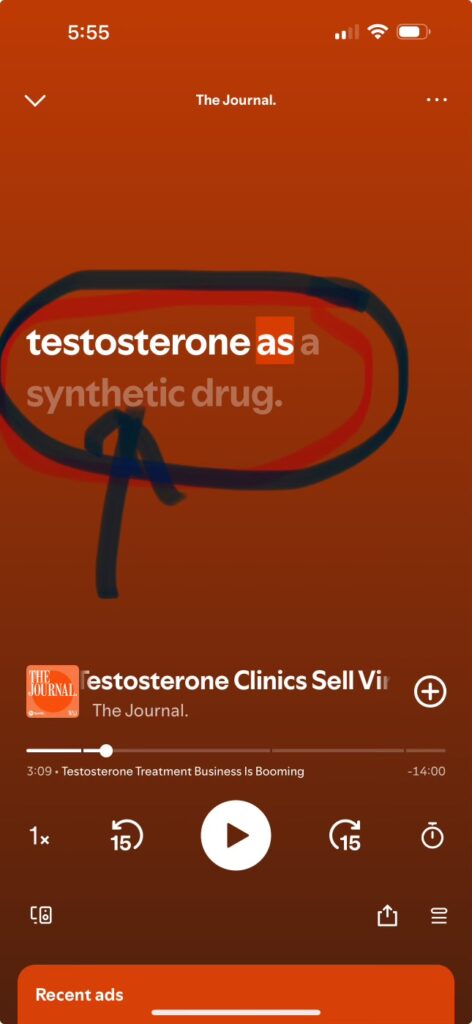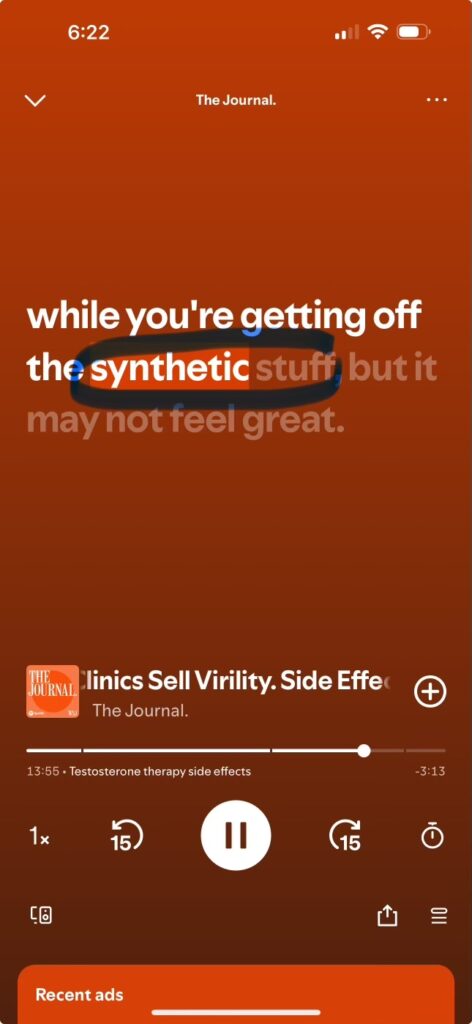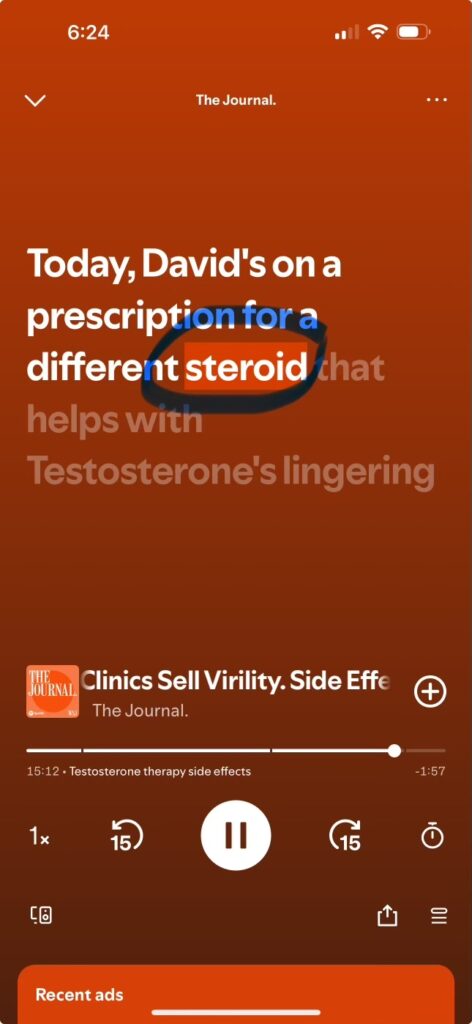Testosterone Therapy: Debunking Common Myths
Recently, one of my patients on our hormone optimization program reached out to me, distressed after listening to a podcast that painted testosterone therapy in a negative light. After listening to the podcast myself, I felt it was important to address some misconceptions and provide clarity on the subject.
Synthetic vs. Bio-Identical Testosterone Therapy
The podcast discussed synthetic testosterone, which is different from what we use in our program. We use bio-identical testosterone, which is chemically identical to the testosterone produced by your body. Big pharmaceutical companies prefer synthetic testosterone because it’s more profitable, but it comes with more side effects. Bio-identical testosterone is cheaper to produce and typically only available from compounding pharmacies and some smaller pharmaceutical companies. Unfortunately, politics and economics play a role in what gets promoted.



Testosterone Therapy and Fertility
It’s true that testosterone replacement can affect fertility by lowering your own production of testosterone and reducing sperm count. However, this effect is usually reversible. Once you stop taking testosterone, your levels typically return to normal within 3-6 months. This is why we don’t prescribe testosterone to men or women who are actively trying to conceive.
Health Risks: Separating Fact from Fiction
The podcast mentioned risks such as blood clots, cardiovascular events, cancer, mood swings, and breast enlargement. These risks are associated with synthetic testosterone. In contrast, numerous studies show that bio-identical testosterone can be beneficial and even help prevent breast and prostate cancer. I’m happy to review these studies with anyone interested. Association between serum testosterone concentration and carotid atherosclerosis in men with type 2 diabetes
Mood and Bone Health
Irritation and anger often occur in patients from low T clinics that prescribe testosterone along with aromatase inhibitors like anastrozole. These inhibitors reduce estradiol, an important hormone for preventing dementia and osteoporosis. Patients who switch to our program report feeling less rage and irritation compared to their experiences at low T clinics. We also perform a DEXA scan before starting treatment to assess bone density, often revealing osteopenia due to previous use of aromatase inhibitors. Doctors typically prescribe these inhibitors to cancer survivors, which explains why some patients develop bone fractures and dementia.
Consider the Source
The podcast in question featured Rolfe Winkler, a technology reporter with no medical background, discussing testosterone. He didn’t invite any experts on the subject. Therefore, it’s crucial to ensure that the information you consume comes from knowledgeable and credible sources, especially when it comes to hormones. Always consult with a hormone optimization expert. Here… listen to the experts Tier 1 Health and Wellness Podcast Dr. Keith Nichols MD.
Conclusion
Testosterone replacement therapy, when done correctly with bio-identical hormones, is safe and effective. It’s essential to differentiate between synthetic and bio-identical testosterone and understand the motivations behind what gets promoted in the media. If you have concerns or questions, please consult with a medical professional who specializes in hormone optimization.
